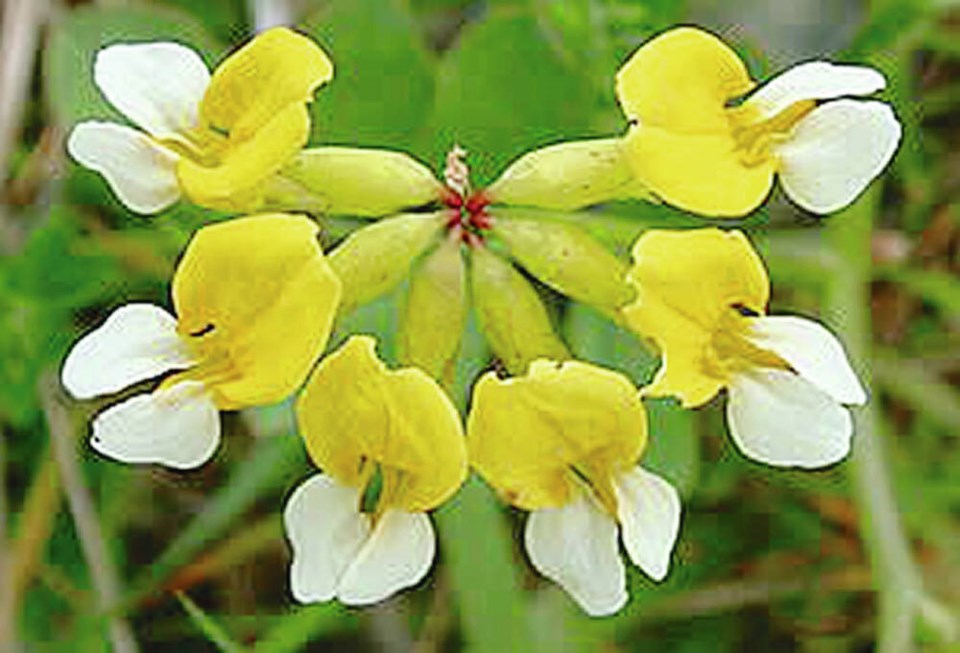Provincial and federal officials will be hearing from the City of Nanaimo and residents who are lobbying for the protection of Harewood Plains, where a rare plant with a yellow-and-white flower makes its home.
Hosackia pinnata (earlier called Lotus pinnatus), also known as Bog bird’s-foot trefoil, has been the floral emblem of the city since 2010.
It is mainly found on Harewood Plains, in the south end of Nanaimo, south and southwest of the Nanaimo Parkway. Some of the land is within a city park, while more than 90 undeveloped acres are privately owned and the subject of a development permit application for a 10-lot subdivision. Some of the land is under a covenant banning disturbing the land.
The private land, on Lotus Pinnatus Way, related to the development permit has an assessed value of $3.8 million.
Many local residents are worried that development on and near Harewood Plains would damage the fragile ecosystem where Hosackia pinnata and other rare plants grow.
Paul Chapman, executive director of the Nanaimo and Area Land Trust, said the plant is an endangered species under the federal Species at Risk Act.
The largest population of Hosackia pinnata in Canada exists on Harewood Plains, near two smaller sites, he said. Those plants represent 85 to 98 per cent of the population in Canada, he said.
“This is the only place it’s thriving. This is the only place it’s viable.”
The park and covenant area do not encompass all the critical habitat necessary to support the plants, Chapman said.
“This is unique to Nanaimo.”
On Harewood Plains, water drains down to the plants, which rely on water pooling in seasonal basins, Nanaimo council was told.
Hosackia pinnata is a perennial herb that grows from a thick taproot and short underground stem, the city says on its website.
“The sprawling to upright stem is hollow and it grows 15-60 cm long. “
“Bog bird’s-foot trefoil grows in open, seasonally wet meadows, along the margins of creeks, or in seepages where underground water comes to the surface. The species appears to require contact with cool, seeping water during the growing and blooming period.”
The federal committee on the status of endangered wildlife said there are five known sites for this rare flower in Canada — all near Nanaimo, the city said.
Three of these sites are on Harewood Plains, one on Gabriola Island and one near Ladysmith.
Bo Staffan Lindgren, speaking for Nature Nanaimo, said Harewood Plains is a sensitive area and “holds unique and critical hydrological features” that make it possible for rare plants to survive.
Council voted in favour of Coun. Paul Manly’s motion that the city ask the province and federal governments to work with it and with the Regional District of Nanaimo, Snuneymuxw First Nation, Nanaimo and Area Land Trust to protect the ecologically and culturally sensitive areas within the area known as the Harewood Plains.
Supporters of the plant sent hundreds of emails to city council members. Mayor Leonard Krog said senior governments have the resources, the interest and the responsibility for protecting lands and urged residents to contact officials at the federal and provincial levels.
Senior governments will not send money to Nanaimo to buy land to create a city park, he said. There will be pressure on the city to purchase Harewood Plains land but if it did that, then it would not have funds to create other parks in the city, Krog said.
>>> To comment on this article, write a letter to the editor: [email protected]



